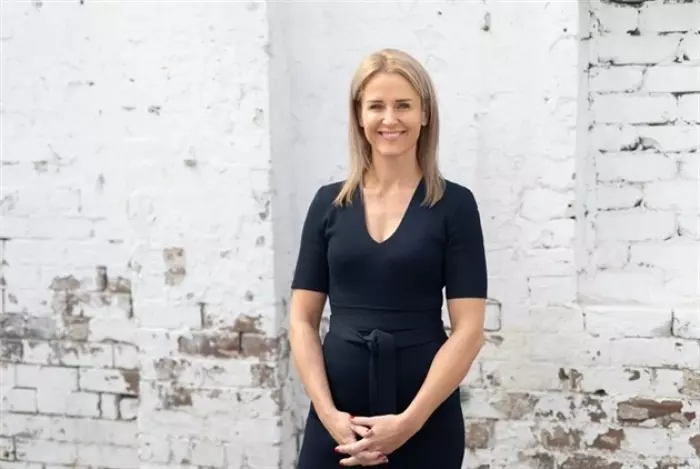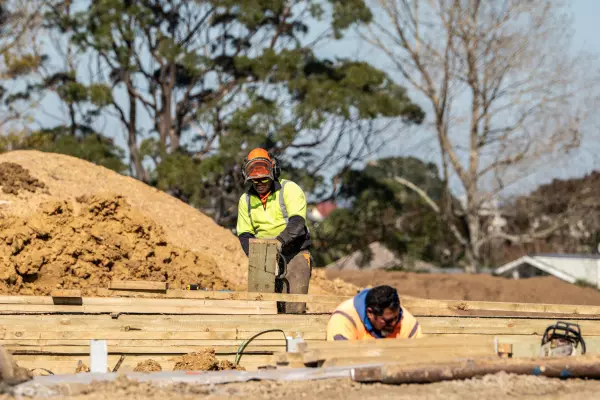Ray White’s chief economist Nerida Conisbee says New Zealand's delta lockdowns have given the housing market just enough time to draw breath, before resuming its record run.
The Australian based economist expects house prices to continue heading north through spring and into summer, on a lack of inventory and continued strong competition for properties.
Ray White is the country’s second-largest realtor with 187 offices. Like all major agencies, last year was a bumper one – with $18 billion worth of properties changing hands, a 42% increase in volumes on 2020.
A return to covid lockdowns in August slowed things down, with a 48.7% year-on-year decline in listings that resulted in only 889 property listings across the country for the month.
Still, the firm managed to go unconditional on 1,101 listings of those it marketed in the month, serving to push down its available inventory by more than a fifth on the same time last year.
That’s also 24.2% fewer properties than were on their books two years ago.
Conisbee said the pandemic driven price boom is not unique to NZ, but “in terms of magnitude it has been the strongest in the OECD”.
The latest value mapping data from property analytics firm Corelogic shows 771 of NZ’s 983 suburbs have seen value increases of $100,000 or more over the past year. This essentially means many property owners made more on paper from capital appreciation than they made at work.
CoreLogic's map shows that only 37 suburbs of Auckland’s 208 suburbs now have a median value of less than $1 million.
The most expensive real estate is in Herne Bay, where the median sale price was at a jaw-dropping $3.25m for the year. The country’s top capital gains were in Ponsonby, with a median gain of $597,550.
Severely unaffordable
Those kinds of numbers have helped elevate NZ into the top ranking of ‘severely unaffordable' housing markets by urban public policy researcher Demographia, second only to Hong Kong.
Auckland, with a price to income multiple of 10, rates as the fourth most expensive city behind Hong Kong, Vancouver and Sydney.
“NZ property is very expensive. But for now, that doesn’t seem to be deterring buyers and competition remains strong,” Conisbee said.
While finance restrictions imposed by the Reserve Bank of NZ (RBNZ) in March did result in some “pricing calm”, the firm’s own data didn’t reflect any substantial price falls, particularly on the auction floor.
Even during the lockdown, virtual auctions have seen frenzied bidding. One South Auckland auction earlier this week attracted 396 bids for a combined 20 properties, with a 71% clearance rate delivering sales of more than $17m.
Conisbee suggests the jury is also still out on whether RBNZ moves to further restrict finance through adjusting loan-to-value ratios and debt-to-income restrictions will impact prices.
This could depend as much on whether there were more lockdowns coming, as well as the extent to which borrowers pull back due to those restrictions, she said.
These restrictions come alongside the government closing tax ‘loopholes’ whereby investment properties purchased on or after March 27 don’t qualify for mortgage interest expense deductions.
For those purchased prior to that, interest deductibility will be phased out over a three-and-a-half-year period from Oct 1.
Investors are also now required to put 40% down on properties, with banks limited to lending only 10% of their book to more than 80% for owner-occupiers from Oct 1.
The central bank’s rationale for the tighter lending is that house prices are above a “sustainable level” with risks of a correction continuing to rise.
Meanwhile, first-home buyers have managed to make ground up on mortgaged multi-homeowners.
The latest mortgage numbers show first-home buyers wrote 26% of all housing loans in July, tracking up from 22% during the first quarter.
That’s particularly evident in Christchurch, where first-home buyers represent 29% of lending, consistent with the city’s position as the most affordable main centre in the country.
However, CoreLogic economist Kelvin Davidson said it’s likely the tighter lending conditions will also prove to be a headwind for first-home buyers.
Davidson said while the market may experience a “short term bounce” as alert levels progressively ease, his outlook for next year is for the pace of property value growth to slow as tighter lending rules bite and mortgage rates rise.














